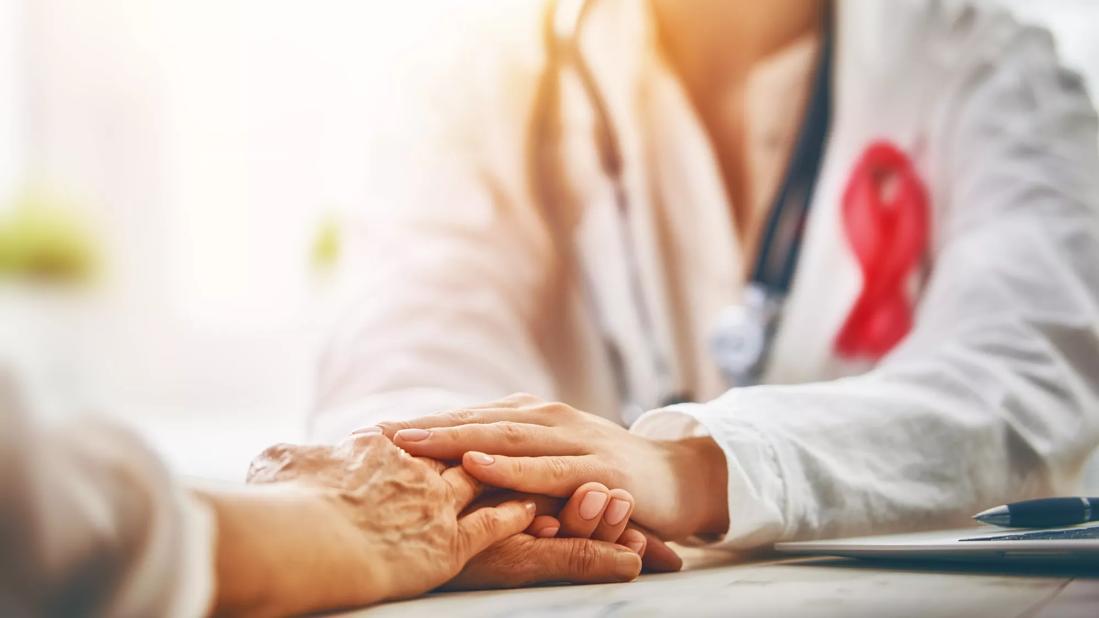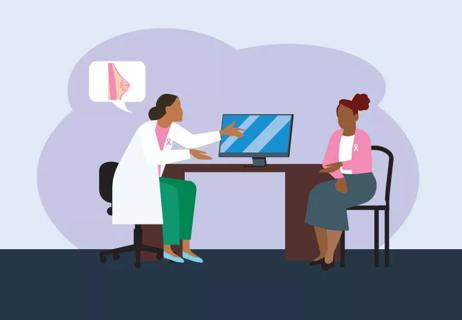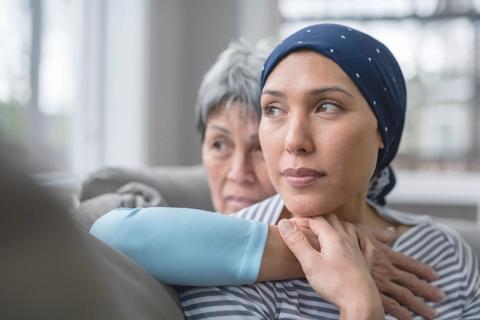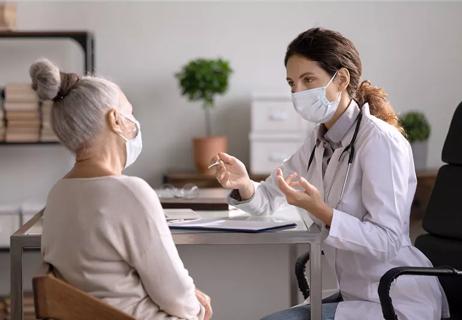Advertisement
New research weighs chemotherapy risk vs. benefits

A large breast cancer study has confirmed what doctors in recent years have suspected: Thousands of women with a common type of early-stage breast cancer will no longer need to undergo chemotherapy after surgery.
Advertisement
Cleveland Clinic is a non-profit academic medical center. Advertising on our site helps support our mission. We do not endorse non-Cleveland Clinic products or services. Policy
The New England Journal of Medicine recently published results of the National Cancer Institute study involving more than 10,000 women with hormone-receptor-positive, HER2-negative breast cancer. The study found that postmenopausal women with a low to middle risk of recurrence score, as determined by a common genomic test (Oncotype DX), only needed anti-estrogen therapy after surgery.
“This means a large number of patients can safely avoid chemotherapy. That’s a huge advantage,” says oncologist Jame Abraham, MD, Director of Cleveland Clinic’s Breast Oncology Program.
In treating breast cancer, doctors typically have given chemotherapy after a lumpectomy or mastectomy. Known as adjuvant treatment, this is meant to help reduce the chance of recurrence.
When patients receive it after surgery, the chemotherapy treatment typically lasts from three to six months, depending on what type of drugs doctors use.
“But chemotherapy comes with a lot of side effects, both short-term and long-term,” Dr. Abraham says.
Common temporary side effects include:
Doctors sometimes have to hospitalize patients to get these problems under control. “Chemo is not easy; it’s not fun,” Dr. Abraham says.
For this major study, researchers enrolled women ages 18 to 75 with hormone-receptor positive, HER-2 negative breast cancer. Doctors used a genomic test (Oncotype DX) that looks at 21 genes to determine each woman’s risk of recurrence on a scale of 0 to 100.
Doctors have been using the test for about 10 years. In general, a recurrence score of less than 18 is considered low, and a recurrence score higher than 31 is considered high. Typically, patients with a recurrence score of less than 18 are treated only with endocrine therapy, and those with scores higher than 31 receive both chemotherapy and endocrine therapy.
However, for this study, researchers considered recurrence score numbers less than 11 as low (and limited treatment to anti-estrogen therapy), while they treated anyone with a score higher than 25 with chemotherapy.
Advertisement
In particular, the study researchers wanted to better understand the role of chemotherapy in patients in the middle range (with scores of 11-25); these were considered as the intermediate risk group.
The recent study results resolved questions about the role of chemotherapy in patients with a scores of 11-25, Dr. Abraham says. After nine years, women who fell in this range, who had only received hormone therapy, had a similar rate of cancer-free survival as women who received both chemotherapy and hormone therapy.
“Also, post-menopausal patients can safely avoid chemotherapy if they have a number less than 25,” Dr. Abraham says.
The only exception is for women who are pre-menopausal or age 50 or younger. The study recommends that doctors evaluate the benefit of chemotherapy for these women who fall in the 16 to 25 recurrence score range.
The recent study results are one more step toward helping doctors and patients practice personalized healthcare, Dr. Abraham says. “We can really individualize treatment and make sure we are prescribing the right treatment for the right purpose.”
Advertisement
Learn more about our editorial process.
Advertisement

Taking care of yourself extends beyond symptom management and includes things like passion projects and meaningful moments

It depends on factors like the stage of the cancer, your age and other risks

Receiving this diagnosis can be scary, but there are ways to manage symptoms and reduce stress

Stay hydrated, opt for fruits, veggies, whole grains and lean protein — and try to eat snacks and smaller meals throughout your day instead of larger portions

Being better informed can help you feel more confident about your care options and decisions

Certain genes passed down from either side of your family can put you at a higher risk for breast cancer and related cancers

Palliative care offers a comprehensive network of support at any stage, from diagnosis to treatment and beyond

Medications, tubing and stress can steal away the ZZZs you need

Focus on your body’s metabolic set point by eating healthy foods, making exercise a part of your routine and reducing stress

PFAS chemicals may make life easier — but they aren’t always so easy on the human body

While there’s little risk in trying this hair care treatment, there isn’t much science to back up the claims